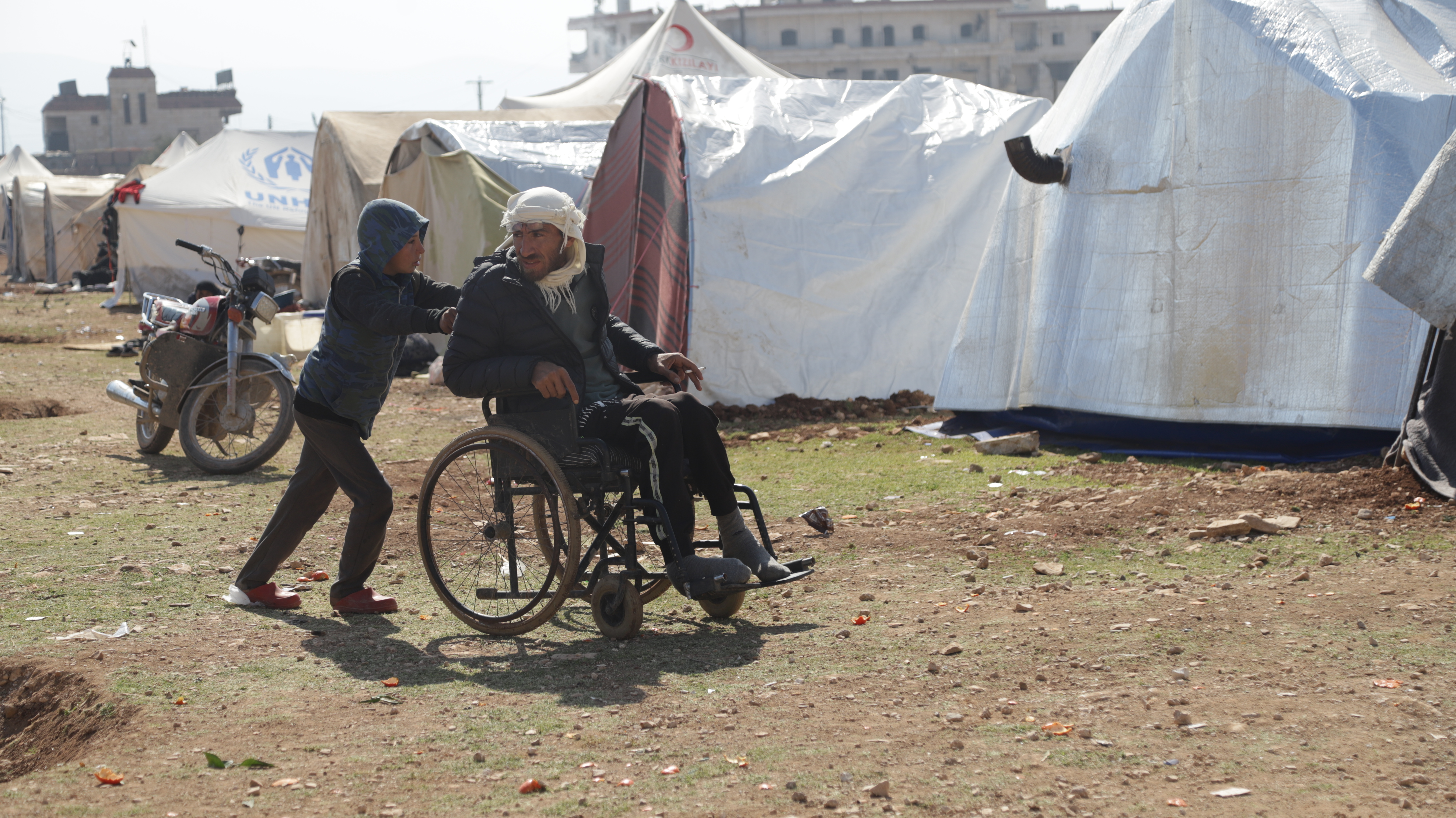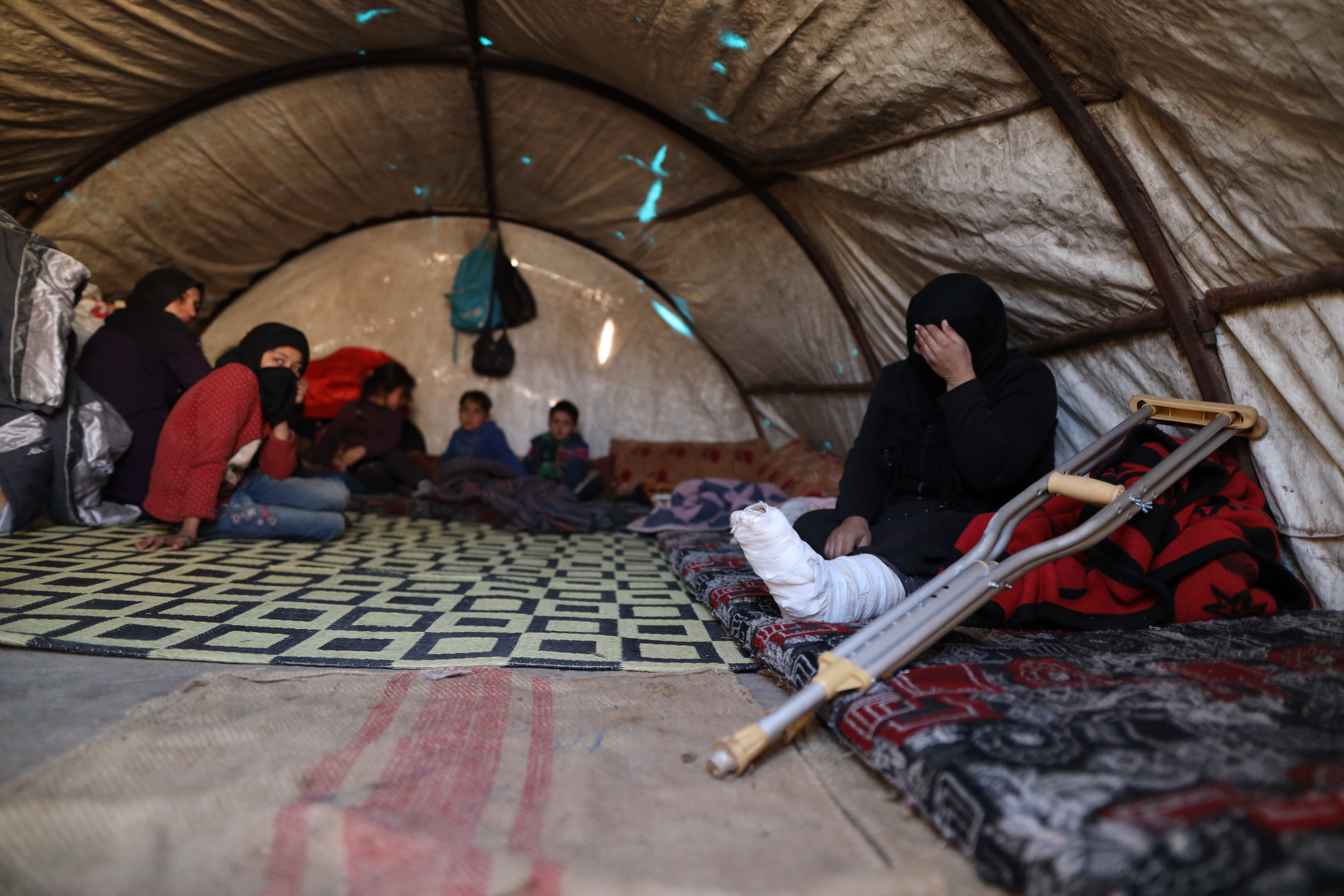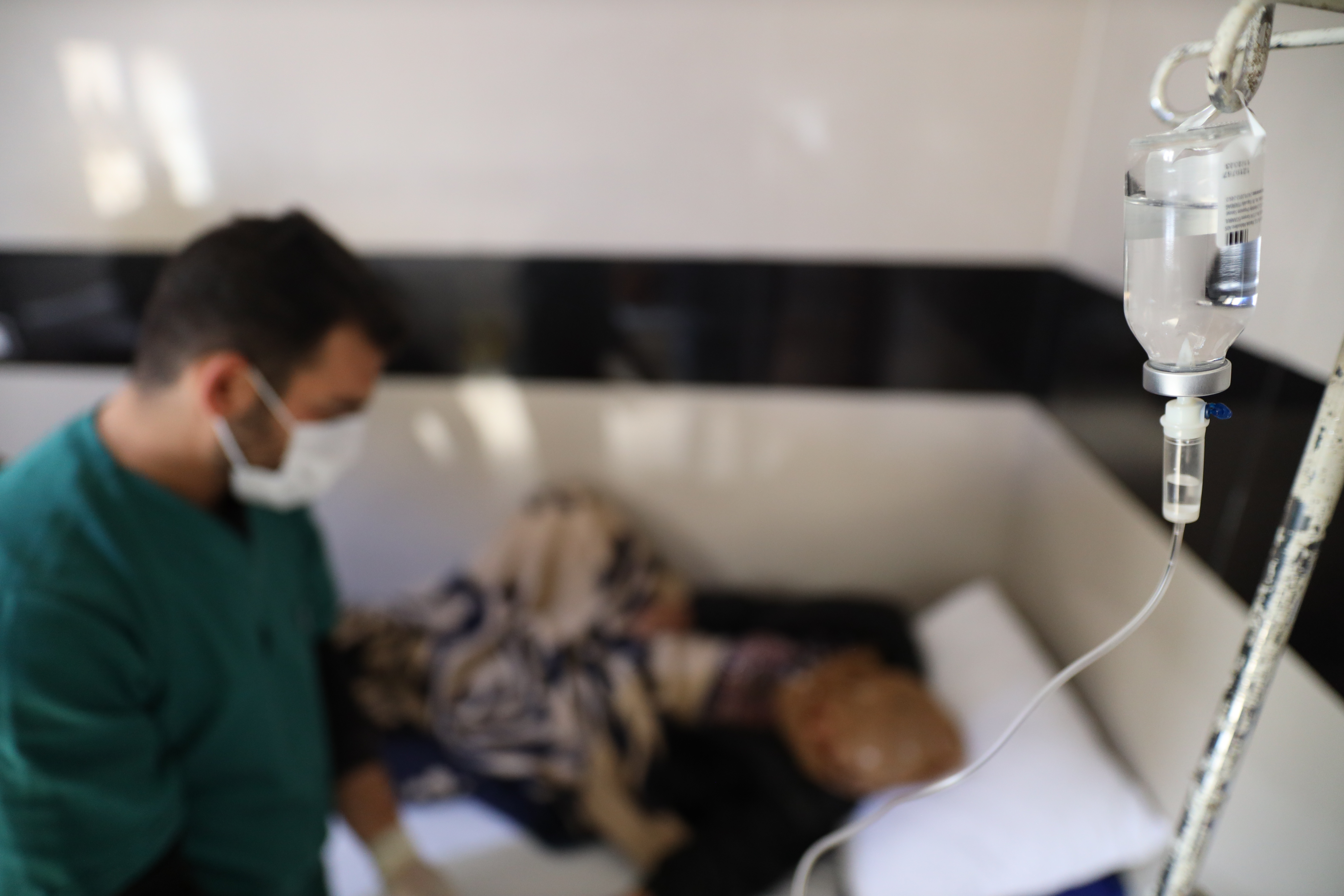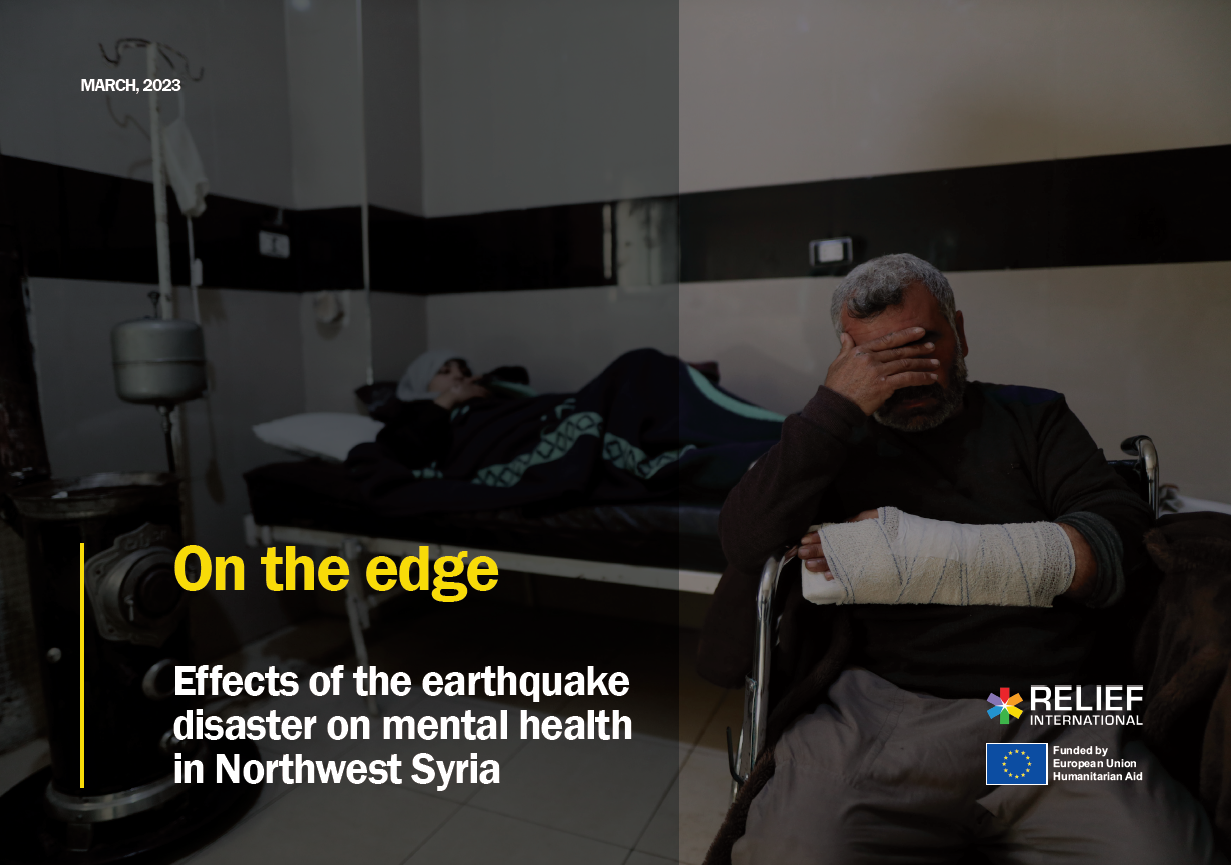“Suddenly they stopped talking and I didn’t want them to be quiet. I wanted to keep hearing their voices because I was afraid that the worst might have happened. I kept shouting out their names, but no one answered,” says Sou’ad, a mother of two who spent hours trapped under the rubble of her house with her sons.
Sou’ad is one of many Syrians whose home collapsed during the 7.8 magnitude earthquake that hit Turkiye and Syria in February 2023. When the earth started shaking, she quickly woke her sons, and they ran to the bathroom to hide, thinking it would be the safest place in the house. In one minute, the four-story building they lived in collapsed, trapping Soua’d and her sons under the rubble, separated from each other by chunks of ceiling and walls that had collapsed on top of them. They were surrounded by rubble, but at least they were able to speak to each other. But as the hours went by, her sons’ responses became less frequent, until they stopped completely:
“After 58 hours, my sons and I were pulled out from under the rubble. I was alive, but they no longer were. I wished I had perished with them under that rubble,” says Sou’ad.
After being rescued, Sou’ad was treated for broken limbs and bruises in one of RI’s health facilities funded by the European Civil Protection and Humanitarian Aid (ECHO), but her pain was more than physical. She was also processing the trauma of the earthquake, losing all her possessions, and most importantly, losing her sons.
Trauma from the Earthquakes has Affected the Mental Health of People Across Syria
Sou’ad is not the only person affected by this disaster. According to the UN, the earthquakes alone displaced more than 100.000 people in an area of Syria where 2.9 million people has already been displaced due to the ongoing conflict in the country over the past 12 years.
“Many people told us that, after all the years of conflict, they were starting to feel some sense of stability. But the earthquakes came and everything went back to zero. They started feeling hopeless again that none of us would ever feel safe , or that the sense of stability would never return” says Ahlam, a Protection Officer at Relief International.
When a third earthquake with 6.4 magnitude hit the region almost two weeks after the first two, it caused widespread fear and panic in Syria. In some places, people were reportedly jumping off buildings from fear of getting stuck under the rubble.
Doctors working in RI health facilities reported that while during the first two earthquakes people came in to seek medical help for broken limbs and open wounds, when the third earthquake hit, the vast majority of patients came in with symptoms of panic attacks, hypertension and heart attacks.
The mental health impact of these earthquakes is enormous.
Since the earthquakes, RI has conducted a rapid needs assessment measuring the wellbeing of those most affected. The results show a change in behaviour in both adults and children after the earthquakes, with the majority of adults interviewed reporting that they were suffering from increased levels of sadness, difficulty sleeping and excessive worrying. When parents were asked if they noticed changes in their children, many reported their children feeling excessive fear and changes in behaviour including excessive crying and bouts of violence.
“We do not know how to sleep, nor do we feel safe. Perhaps this is the worst thing that happened to us after the war. In the war, we were afraid, but we were able to strengthen each other. Now everyone is afraid,“ says Qamar, a woman who endured a 16-hour long ordeal trapped under the rubble with her family. She was the only survivor in her family.
“Most of the people who lived through the earthquakes told us that this experience was more difficult than all the years of war they had lived through. The tension and fear were very clear among everyone,” says Ahlam, RI’s Protection Officer.
“Many people cannot sleep, and when they do sleep, they have nightmares about losing their family members, their children, or dying under the rubble” adds Ahlam.
How is Relief International Responding?
As part of its initial emergency response to the earthquakes, Relief International altered its existing mental health support processes so that it could help as many people as possible.
Firstly we took protection services directly to the hospitals and health facilities people were visiting, so that we could offer support directly to patients who came to recieve treatment for their injuries.
In addition, the usually lengthy intake assessments for new patients were shortened in order to be able to offer psychological first aid and PSS services inside facilities and collective shelters to as many people as possible.
And to increase impact, our teams organised collective workshops that more people could attend, equipping them with tools and techniques on how to deal with trauma.
Moreover, for those requiring services not directly offered by us, Relief International staff members used a rapid referral system so that we could make sure every patient would get the support they needed.
During February and first half of March 2023, through ECHO funding alone, RI’s Protection team was able to offer protection services to roughly 400 people.
Moving Forward
The effects of the earthquakes on mental health are long term, and the most severe conditions like post-traumatic stress disorder (PTSD) are likely to appear in the months to come.
This makes mental health and PSS support essential for people’s recovery in the months to come.
“The impact of the disaster was significant on everyone. Even our teams were deeply affected by what happened, as many of them lost their homes or family members. However, we continued our work to offer immediate support to people affected by the earthquake.” says Ahlam.
RI is committed to continuing to provide mental health and protection services to as many people as possible for as long as we are needed.
“The consequences of the earthquake on the already precarious psychological wellbeing of Syrians in Northwest Syria will require short-, medium- and long-term responses to ensure proper recovery process,” says Valeria Gholizadeh-Gajkar, acting Syria country director.
“In reality, our work is just starting.”
This article covers humanitarian aid activities implemented with the financial assistance of the European Union. The views expressed herein should not be taken, in any way, to reflect the official opinion of the European Union, and the European Commission is not responsible for any use that may be made of the information it contains.



